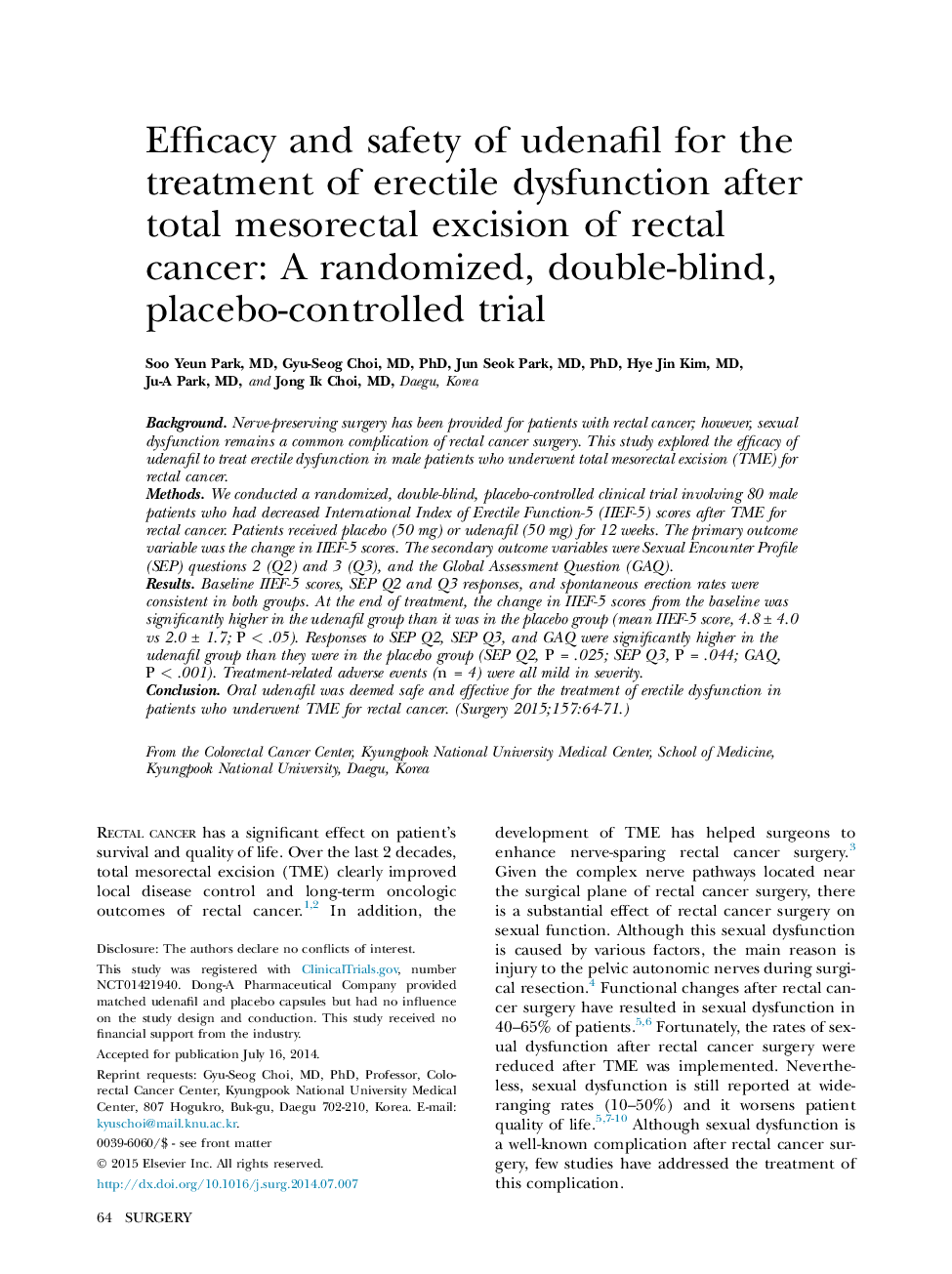| Article ID | Journal | Published Year | Pages | File Type |
|---|---|---|---|---|
| 4307309 | Surgery | 2015 | 8 Pages |
BackgroundNerve-preserving surgery has been provided for patients with rectal cancer; however, sexual dysfunction remains a common complication of rectal cancer surgery. This study explored the efficacy of udenafil to treat erectile dysfunction in male patients who underwent total mesorectal excision (TME) for rectal cancer.MethodsWe conducted a randomized, double-blind, placebo-controlled clinical trial involving 80 male patients who had decreased International Index of Erectile Function-5 (IIEF-5) scores after TME for rectal cancer. Patients received placebo (50 mg) or udenafil (50 mg) for 12 weeks. The primary outcome variable was the change in IIEF-5 scores. The secondary outcome variables were Sexual Encounter Profile (SEP) questions 2 (Q2) and 3 (Q3), and the Global Assessment Question (GAQ).ResultsBaseline IIEF-5 scores, SEP Q2 and Q3 responses, and spontaneous erection rates were consistent in both groups. At the end of treatment, the change in IIEF-5 scores from the baseline was significantly higher in the udenafil group than it was in the placebo group (mean IIEF-5 score, 4.8 ± 4.0 vs 2.0 ± 1.7; P < .05). Responses to SEP Q2, SEP Q3, and GAQ were significantly higher in the udenafil group than they were in the placebo group (SEP Q2, P = .025; SEP Q3, P = .044; GAQ, P < .001). Treatment-related adverse events (n = 4) were all mild in severity.ConclusionOral udenafil was deemed safe and effective for the treatment of erectile dysfunction in patients who underwent TME for rectal cancer.
